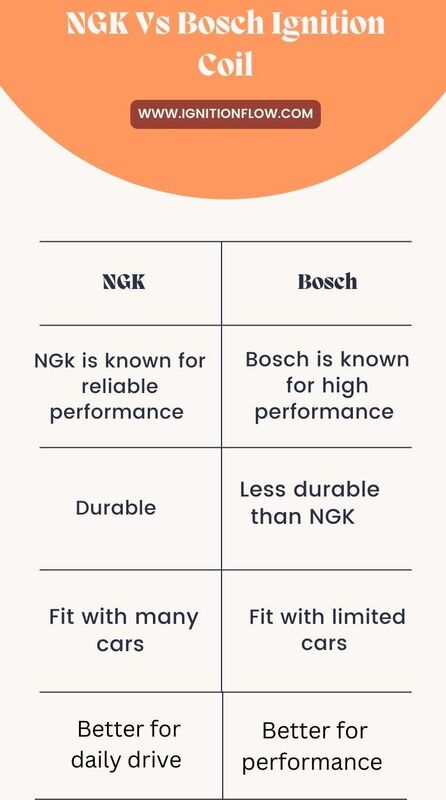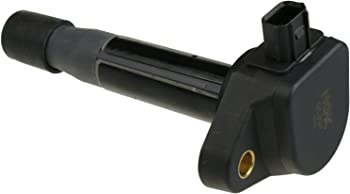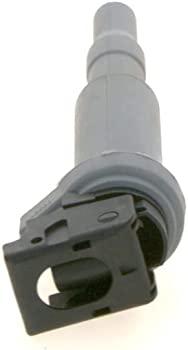NGK and Bosch are two well-known ignition coil manufacturers. We are going to discuss them in detail and tell you some of the major differences that will eventually help you make up your mind about a brand.
The ignition coils manufactured by NGK are renowned for their dependability and durability, as they are made from high-quality components that can survive extreme conditions. Bosch ignition coils are likewise built from high-quality materials, but product-specific longevity varies.
NGK ignition coils are easy to install due to their compact and lightweight design, whilst Bosch ignition coils are built for quick installation and compatibility with a larger variety of engine systems.
Both brands seek to provide a high energy output for efficient fuel burning in engines, while the precise output levels may vary.
Toyota, Honda, Nissan, and Mazda utilize NGK ignition coils, while Audi, BMW, Mercedes-Benz, Volkswagen, and Porsche utilize Bosch ignition coils.
| Name | Image | Price |
|---|---|---|
| NGK Ignition Coil |  | $$ |
| Bosch Ignition Coil |  | $$ |
NGK Vs Bosch Ignition Coil In a Table

NGK Ignition Coil Overview

The NGK Ignition Coil is an electrical part that is used in internal combustion engines to change the low-voltage current from the battery into the high-voltage current that is needed to light the fuel in the engine’s cylinders.
It is a well-known and respected company that makes ignition coils. They are known for making high-quality products that work well. NGK ignition coils are designed to work with a wide range of engine systems and light fuel consistently and efficiently.
I’ve used this brand’s ignition coil for a long time, and these are the main things I’ve learned:
One of the best things about NGK ignition coils is that they last a long time. NGK ignition coils are made to handle the high temperatures and rough conditions that are common in engines that use gasoline or diesel. This helps make sure that the performance of the ignition coils stays the same over time, even when driving in tough conditions.
NGK ignition coils also use less gas than other ignition coils. By ensuring that fuel is ignited evenly and efficiently, NGK ignition coils can improve fuel efficiency and reduce emissions.
NGK’s Ignition Coil is a high-quality, reliable electrical part that allows internal combustion engines to run more efficiently and use less fuel. When replacing or upgrading your engine system, the NGK Ignition Coil is a great choice.
NGK ignition coils advantages
- NGK ignition coils provide reliable and consistent sparks – very dependable.
- As well as working with a variety of motors, NGK ignition coils are also backward-compatible – a handy feature, isn’t it?
- NGK ignition coils are easy to install thanks to their user-friendly design.
NGK ignition coils disadvantages
- The higher price tag makes NGK ignition coils less attractive to shoppers on a tight budget.
- Since NGK ignition coils are more sophisticated than competing brands, it is more difficult to understand and diagnose problems with them – I know this from experience.
Bosch Ignition Coil Overview

An internal combustion engine’s Bosch Ignition Coil is an electrical component responsible for transforming the low-voltage current from the battery into the high-voltage current required to ignite the gasoline in the cylinders.
Bosch is a highly regarded car parts producer, and its ignition coils are among its most popular products due to their sturdy design and consistent efficiency. Bosch ignition coils can work with many different types of engines and are reliable and effective at lighting the fuel in the cylinders.
I’ve also used this ignition coil for a while. Here are some things I’ve learned from using this brand’s ignition coil:
Bosch ignition coils last longer than other brands, which is a major advantage. Ignition coils from Bosch are distinguished for their durability and reliability despite being subjected to the extreme heat and pressures of internal combustion engines. It’s a good way to make sure the ignition coils keep working reliably, even under extreme conditions.
Bosch ignition coils save money at the pump, and that’s not the only perk they offer. Bosch ignition coils contribute to better fuel economy and lower emissions by ensuring that the fuel in the cylinders is always and reliably ignited.
The Bosch Ignition Coil, in general, is an excellent electrical component that helps internal combustion engines run better and more efficiently. The Bosch Ignition Coil is a great option for upgrading your engine system or replacing a worn-out or broken-down existing ignition coil.
Bosch ignition coil advantages:
- Bosch ignition coils are renowned for producing high-quality, dependable sparks that enhance engine performance -really great service.
- Bosch ignition coils are built with premium materials, which contribute to their durability and longevity.
- Bosch ignition coils are a versatile alternative because they are made to work with a wide variety of engine systems – at first glance, I find this feature quite appealing.
- Bosch ignition coils are made to install quickly and with minimal effort.
Bosch ignition coils disadvantages
- Some consumers may find Bosch ignition coils to be more pricey than those from other companies, which reduces their affordability – price is a common concern.
- Bosch ignition coil designs can be more intricate than those of competing brands,
making it more challenging to comprehend and identify issues with them.
NGK vs Bosch ignition coil: Major Differences
Let’s move on to the most important part of this discussion. Here are some major differences between the ignition coils. Some of them are personal experiences, and some of them I came across while researching.
- Bosch ignition coils are known for their high-performance capabilities and ability to generate a constant spark over time, whilst NGK coils are noted for their reliability and longevity.
- The compact and lightweight design of NGK ignition coils makes them simple to install and integrate with the majority of engine systems. In contrast, Bosch ignition coils are designed to be more adaptable, allowing for quicker installation and integration in a larger variety of engine systems.
- Resistance influences the amount of voltage an ignition coil can generate. In general, NGK ignition coils have a lower resistance than Bosch ignition coils, resulting in higher voltage output. However, a lower resistance might lead to more heat production and an increased risk of ignition coil failure. Not that it occurs frequently, but it is notable nonetheless.
- Numerous NGK ignition coils are constructed with a high-temperature epoxy resin that can withstand high temperatures and vibration, whereas Bosch ignition coils may have a more robust housing that provides additional protection from damage.
- NGK ignition coils are utilized by a variety of automobile manufacturers, including several of the world’s largest automakers. Toyota, Honda, Nissan, and Mazda are some of the automobile manufacturers that employ NGK ignition coils.
- Bosch ignition coils are utilized by a variety of automobile manufacturers, including several of the largest automakers. Numerous automobile manufacturers, including Audi, BMW, Mercedes-Benz, Volkswagen, and Porsche, employ Bosch ignition coils.
Note: Consider your car and engine system while deciding between NGK and Bosch ignition coils. Both brands make high-quality, trustworthy items, so your choice will depend on your budget and tastes. To choose an ignition coil, call a mechanic or check the manufacturer’s specs.
Summary
Both brands offer quality products with different features and advantages. NGK has a longer lifespan and is more durable, while Bosch offers more affordable prices.
If you would like to compare your NGK ignition coil to other models, please take a look at our selection of comparisons including Hitachi vs. NGK, NGK vs. Denso, and TRQ vs. NGK.
We offer comparisons between Delphi and Bosch Ignition Coils, as well as Denso and Bosch Ignition Coils, so you can make an informed decision about Bosch Ignition Coils. Please take a few moments to review these comparisons, so you can gain a better understanding of the Bosch Ignition Coil.
